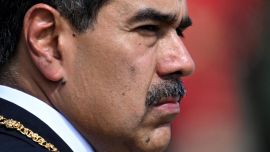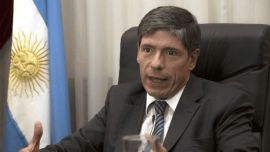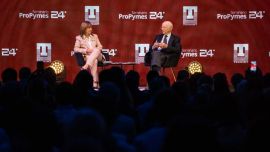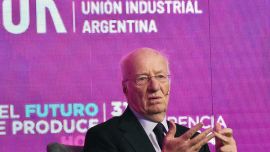Argentina is improving ties with Paraguay ahead of this week’s crucial Mercosur summit, with vaccines topping the agenda of both nations.
Paraguayan President Mario Abdo Benítez is under pressure. Last week he narrowly avoided a second attack on him in the form of impeachment. At home, he is charged with an “inept” handling of the pandemic, with loud complaints about the lack of vaccines in the country.
Argentina, which has already donated a few thousand doses to Asunción, offered to carry out negotiations with China with a view to providing it with a channel for political dialogue. It was one of the topics that Foreign Ministers Felipe Solá and Euclides Roberto Acevedo Candia discussed when they met in Buenos Aires last week.
Paraguay is paying the political price for its diplomatic recognition of Taiwan, with China having closed the door not only to the world’s largest source of health resources during the pandemic but also to the crucial vaccines that are produced in that country.
In parallel, the Alberto Fernández administration is advancing with its plans for this week’s Mercosur summit, which falls 30 years after the Treaty of Asunción. In the end, the virtual summit this Friday, March 26, will be only for presidents. Foreign ministers from the member nations will seek to reschedule their own talks, preferring a face-to-face encounter.
Hopes are not high for Friday’s summit. Though it is expected that some long sticking points will be addressed – such as the Estatuto de Ciudadanía (“Citizenship Statute”) and even a new logo – Mercosur’s member nations will celebrate the anniversary with clear differences between them.
Undoubtedly, the Fernández government is cause for some of those clashes, especially in terms of certain commercial aspects, such as the closing of agreements with third parties and the lowering of the common external tariff (AEC).
Inside the Casa Rosada, they insist that there is an "ideologisation" in the positions adopted by the other governments, one that makes Argentina appear intransigent when it is not.
Following that theme, Solá spoke with his Brazilian counterpart Ernesto Araújo last week, with talks again touching on the AEC. Although both administrations have reached a certain impasse that allows political coexistence – strictly speaking, the dialogue between the foreign ministers was never affected by the crossings between presidents – in economic terms Buenos Aires and Brasilia are going in opposite direction
In Brazil, they continue to push the idea of greater flexibility for trade negotiations, putting aside the rule of consensus, a de facto veto power. Uruguay is also onboard with that line and President Jair Bolsonaro’s government hopes to win Paraguay’s support too. Argentina, for its part, is preparing to show its goodwill by offering the Central American market and looking closely at the Southeast Asian market. Ambassadors from those nations met with Solá last week.























Comments